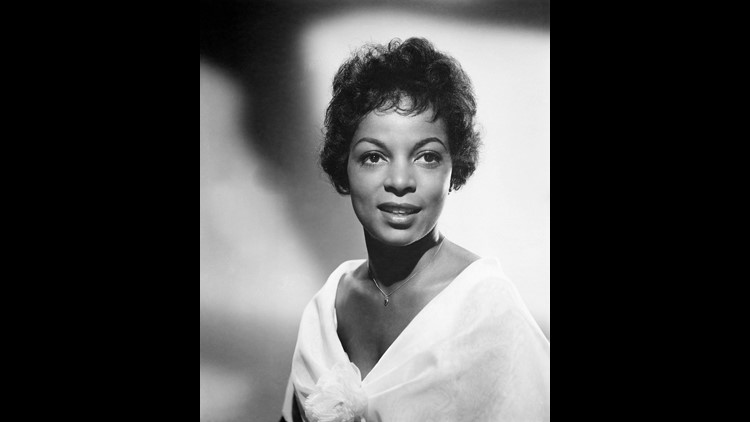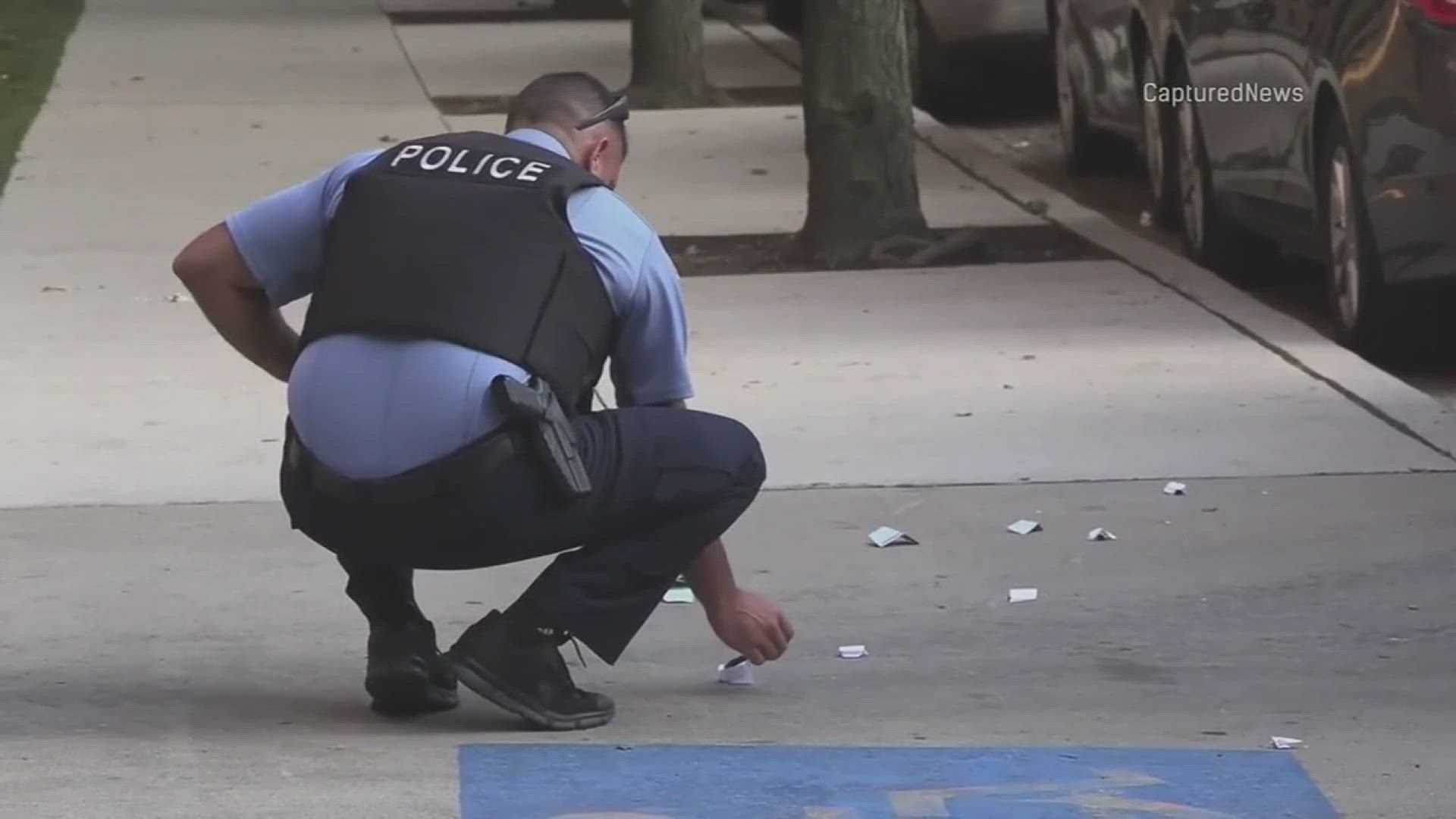(CNN) — Ruby Dee, the award-winning actress whose seven-decade career included triumphs on stage and screen, has died. She was 91.
Dee died peacefully Wednesday at her New Rochelle, New York, home, according to her representative, Michael Livingston.
Dee — often with her late husband, Ossie Davis — was a formidable force in both the performing arts community and the civil rights movement. The couple were master and mistress of ceremonies at the 1963 March on Washingon, and she was friends with the Rev. Martin Luther King Jr. and Malcolm X. Dee received the Frederick Douglass Award in 1970 from the New York Urban League.
As an actress, her film credits included “The Jackie Robinson Story” (1950), “A Raisin in the Sun” (1961), “Buck and the Preacher” (1972), “Do the Right Thing” (1989) and “American Gangster” (2007).
Dee earned an Oscar nomination for her performance in “Gangster.” She won an Emmy and Grammy for other work.
Broadway star Audra McDonald paid tribute to Dee when she accepted a Tony Award on Sunday, crediting Dee, Maya Angelou, Diahann Carroll and Billie Holiday for making her career possible. McDonald won a best actress Tony in 2004 for playing the same role Dee created on Broadway in 1959 and in the 1961 film version of “Raisin.”
In a statement, Gil Robertson IV of the African American Film Critics Association praised Dee’s contributions.
“The members of the African American Film Critics Association are deeply saddened at the loss of actress and humanitarian Ruby Dee,” said Robertson. “Throughout her seven-decade career, Ms. Dee embraced different creative platforms with her various interpretations of black womanhood and also used her gifts to champion for Human Rights. Her strength, courage and beauty will be greatly missed.”
Dee was born Ruby Ann Wallace in Cleveland, Ohio, in 1922, and moved to New York’s Harlem as a child. She took the surname Dee after marrying blues singer Frankie Dee two decades later. She divorced Dee after a short marriage and was wedded to Davis in 1948. Davis preceded his wife in death in 2005.
Her acting career started in New York in the 1940s, first appearing onscreen in the 1946 musical “That Man of Mine.” A role in “The Jackie Robinson Story” brought her national attention.
Dee became known to a younger generation with roles in two Spike Lee films. She co-starred with Davis in Lee’s “Do the Right Thing” and in his 1991 film “Jungle Fever.”
First lady Michelle Obama tweeted that she was “deeply saddened” by Dee’s death. “I’ll never forget seeing her in ‘Do the Right Thing’ on my first date with Barack.”
Dee’s television work included 20 episodes of “Peyton Place” in 1969 and the role of Queen Haley in the 1979 miniseries “Roots: The Next Generation.”
‘The finest performance I have ever seen’
She was regularly praised for her acting.
In the 1961 film version of “Raisin,” Lorraine Hansberry’s play about a working-class black family trying to move up in the world, she played Ruth Younger, the wife of Sidney Poitier’s striving Walter.
“Miss Dee is quietly magnificent as the angry young man’s hard-working wife,” wrote Bosley Crowther in The New York Times.
Her stage work was equally lauded.
“Ruby Dee as Lena is giving the finest performance I have ever seen,” wrote The New York Times’ Clive Barnes in 1970 of Dee in Athol Fugard’s play “Boesman and Lena.” “Never for a moment do you think she is acting.”
She won an Obie for that performance in 1971.
Other awards included a 1972 Drama Desk award for “Wedding Band,” a 1991 Emmy for “Decoration Day,” a 2007 Grammy for spoken-word album and a Golden Globe for “American Gangster.”
Actor Samuel L. Jackson, who was in “Jungle Fever” and “Do the Right Thing” with Dee, tweeted: “We Lost A Jewel Today, Mrs Ruby Dee, So Great, So Loved! R.I.P. All sympathy to her family.”
Director Spike Lee tweeted that he was “crushed” by the loss of Dee, whom he called “‘spiritual mother.”
Always an activist
Dee and Davis — the two, who were married 56 years, always seemed connected — were an odd couple in some ways: She from New York, he from Waycross, Georgia. She was small and stylish, he was big and bluff. But their beliefs were often as one, and they practiced what they preached.
“We shared a great deal in common; we didn’t have any distractions as to where we stood in society. We were black activists. We had a common understanding,” she told Ebony in 1988.
Dee and Davis met while acting in the 1945 Broadway play “Jeb” in 1945. He proposed three years later with a telegram he sent from Chicago, where he was touring in a play, according to their joint autobiography “With Ossie and Ruby: In This Life Together,” published near their 50th anniversary. The telegram to his girlfriend said he “might as well marry” her. Dee wrote back, “Don’t do me any favors.”
Their book revealed the challenges of their long marriage, including a phase in the 1960s in which they agreed they could sleep with others when work separated them. The arrangement lasted only a short time, they said. “We ultimately decided that what we had chosen as a possibility didn’t really work for us,” Davis said in 1999.
“You have to learn how to be married,” Dee said. “You have to learn to love somebody.”
There was no television in their home for years, The New York Times observed in a 1995 profile, because “television represented an industry that refused to hire black people in significant numbers or in anything other than stereotypical roles.”
They appeared at protest rallies and took their children with them. She admitted to a fiery temperament: In a famous “American Gangster” scene, she slaps star Denzel Washington across the face, noting she put everything into the motion.
“It’s not far from my nature to whack,” she told USA Today. “There’s a streak in me.”
Dee and Davis were arrested in 1999 while protesting outside New York City police headquarters against the police shooting of an unarmed African immigrant, Amadou Diallo. Dee told reporters the shooting “reminds me of when there were lynchings all over the country.”
“We’ve got to start saying ‘No further. This must stop,’ ” Dee said.
Even before the appearances in Spike Lee movies made them famous faces again, Dee and Davis were always working, always pushing, whether it was producing a 1986 PBS special on King or creating a two-person show drawing on the work of African-American writer Zora Neale Hurston.
The two also shared a lot of laughter.
“The life is the fun,” she told the Times in 1995.
“We walk in the middle of humor every day, and we laugh,” Davis responded.
“And we fight, too,” Dee replied. “Yeah. I win.”
Dee is survived by three children, Guy Davis, Hasna Muhammad Davis and Nora Day Davis.



